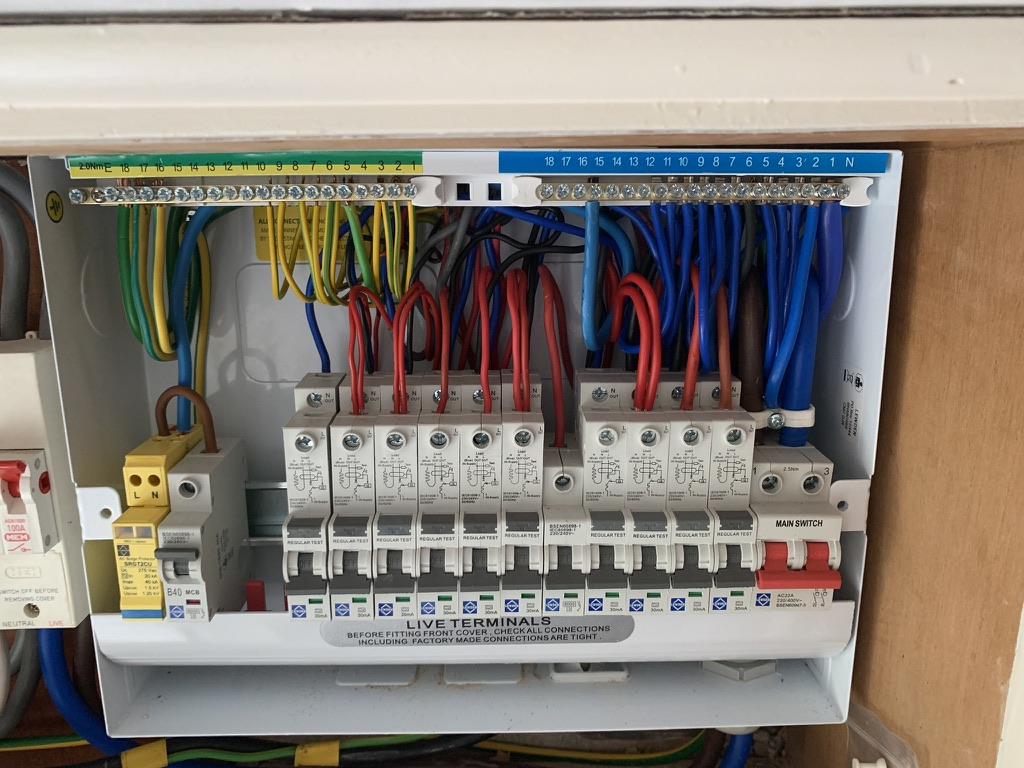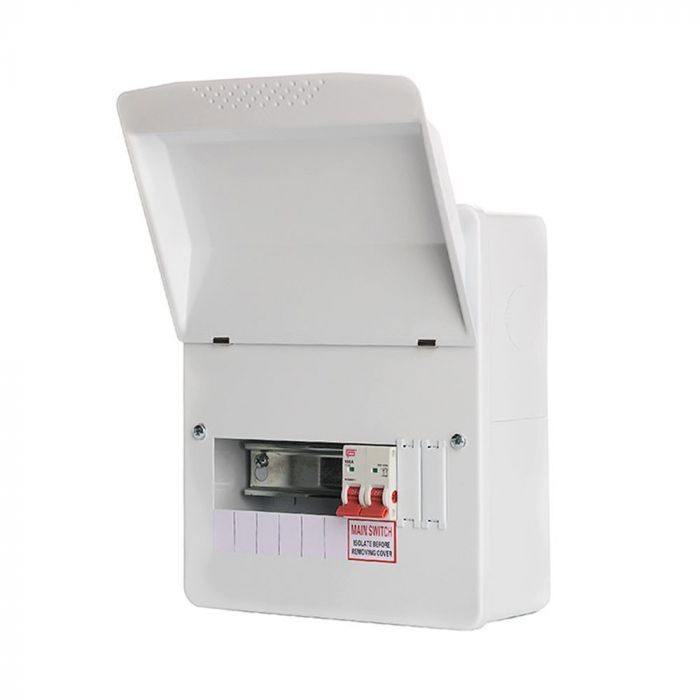Common Mistaken Beliefs Regarding RCBO CONSUMER UNITS Described
Common Mistaken Beliefs Regarding RCBO CONSUMER UNITS Described
Blog Article
The Role of Consumer Systems in Reliable Power Monitoring Solution
Customer devices are important to efficient power monitoring systems, serving as the main distribution points for electrical power within frameworks. The arrival of clever technologies has further boosted their capability, enabling for real-time data surveillance and nuanced energy intake evaluation.
Recognizing Consumer Devices

Understanding the function of consumer devices starts with identifying their necessary function in safeguarding electric systems. By isolating faults within particular circuits, consumer devices stop extensive failures and potential fire threats. This isolation is attained with using breaker that trip or merges that blow when a fault is spotted, thus removing the electrical flow to the influenced circuit.
Furthermore, consumer units help with the orderly distribution of power, enhancing the performance of power use. They allow for the methodical administration of electric loads, which can be particularly essential in commercial and industrial setups where demand can fluctuate dramatically. Properly conserved customer systems add to the longevity of electric systems and aid in minimizing downtime triggered by electric failings, inevitably supporting the smooth procedure of energy-dependent facilities.
Smart Technologies Assimilation

A vital benefit of wise consumer units is their capacity to take advantage of advanced algorithms and artificial intelligence for predictive analytics. This enables preemptive changes based on use patterns, weather prediction, and various other variables, substantially increasing total efficiency. Additionally, wise customer devices help with demand response programs, where power usage can be dynamically adjusted throughout optimal durations to stabilize the grid and lower costs.
The integration of eco-friendly power sources, such as solar and wind, is likewise streamlined with smart consumer units. By intelligently taking care of the intermittency of these resources, these systems make sure a reliable and balanced energy supply. In addition, smart consumer systems improve user involvement by offering thorough insights and remote control abilities through mobile applications, fostering a more aggressive approach to energy conservation and sustainability.
Surveillance Power Intake
Structure on the capacities of clever technologies assimilation, keeping track of energy intake becomes a crucial emphasis within energy management systems. Efficient monitoring functions as the foundation for determining power ineffectiveness and applying restorative actions. By leveraging sophisticated metering facilities (AMI), real-time data on energy use can be accumulated at granular degrees, giving valuable insights right into intake patterns and peak demand durations. This data-centric approach allows both customers and energy supervisors to make informed decisions targeted at lowering waste and improving overall effectiveness.
Smart meters and Internet of Points (IoT) devices play a crucial duty in this tracking process. These devices can track power usage in real-time, transferring information to central systems for evaluation. The collected data is after that processed with advanced formulas to discover abnormalities, forecast future intake, and suggest optimization techniques. Additionally, cloud-based remedies offer scalable systems for storing and evaluating huge datasets, promoting remote monitoring and control.
The integration of web link these modern technologies not just equips consumers with in-depth information regarding their energy use but additionally supports energy providers in managing lots circulation a lot more properly. Ultimately, specific and continual monitoring is essential for accomplishing energy performance, price savings, and sustainability goals within power monitoring systems.
Optimizing Home Appliance Use

One effective method involves recognizing peak and off-peak hours to shift energy-intensive tasks, such as laundry or dishwashing, to times when power need is lower. This not only minimizes stress on the grid yet likewise exploits on reduced energy tolls. Additionally, incorporating device discovering formulas enables anticipating maintenance, making sure devices run at ideal performance and lengthening their life expectancy.
Energy management systems can likewise include user-specific preferences and behaviors to customize home appliance use timetables. For instance, smart lights systems can change brightness based upon tenancy and natural light availability, while heating and cooling systems can preserve comfort levels without excessive energy usage.
Supporting Sustainability
Promoting sustainability within energy management systems involves not only enhancing performance but likewise cultivating environmentally liable practices. Customer units are important to this process, as they supply real-time information and control devices that make it possible for individuals to monitor and lower their power intake. By leveraging sophisticated innovations, consumer units can determine energy-saving opportunities and assist in the integration of renewable resource sources like solar and wind power.
One essential aspect of advertising sustainability is enlightening consumers on the benefits of liable power usage. With detailed understandings given by consumer systems, users can make enlightened choices that reduce their carbon impact. These units can suggest optimum times for operating high-energy appliances based on grid need and renewable power accessibility, consequently reducing dependence on fossil fuels.
Moreover, consumer browse around this site units support the adoption of smart grid innovations, which boost the general performance and dependability of energy distribution. By allowing two-way communication in between customers and energy service providers, these systems can dynamically adapt to power demands, lowering waste and advertising the use of lasting energy methods.
Conclusion
Customer devices, as important elements of energy management systems, dramatically improve electrical safety and security and effectiveness within structures through circuit defense and wise innovation combination. Real-time data tracking and analysis helped with by these units optimize energy usage and appliance use. Furthermore, the consolidation of renewable resource sources advertises sustainable methods, adding to lowered general energy usage and lower carbon footprints. Consequently, customer systems play an important function ahead of time both energy effectiveness and environmental sustainability.
Developments in smart modern technologies have actually revolutionized the capacities of power monitoring systems, specifically via the combination of wise consumer systems.Building on the abilities of clever innovations assimilation, checking power usage ends up try this site being an essential focus within energy monitoring systems.Efficient appliance usage optimization is a critical component of energy management systems, aiming to enhance performance and decrease unnecessary power intake.Customer systems, as integral elements of power monitoring systems, significantly improve electric security and performance within structures through circuit protection and clever modern technology integration. In addition, the unification of eco-friendly energy sources advertises sustainable techniques, contributing to decreased total power consumption and lower carbon impacts.
Report this page